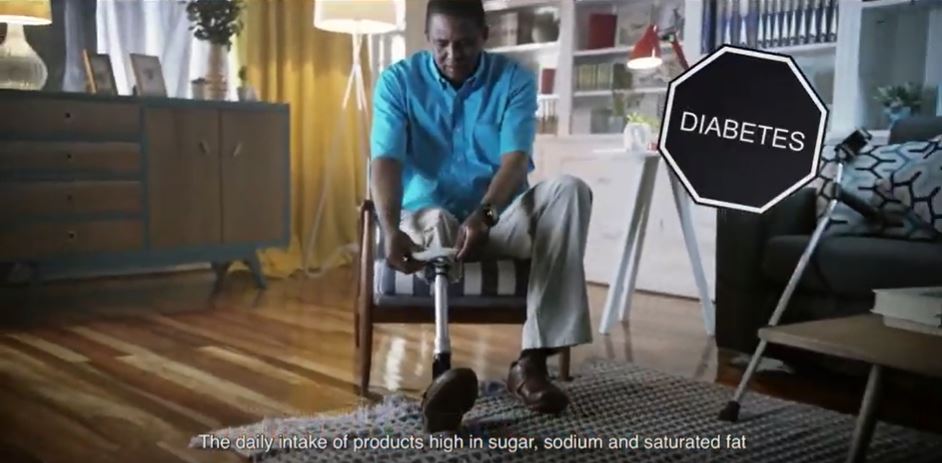
Over 2 billion people—nearly one-third of the world’s population—are overweight or obese, including more than 41 million children under age 5. Obesity and poor diet are risk factors driving increases in type 2 diabetes, cancer, heart disease, stroke, and related premature death. This epidemic is increasing most rapidly in low- and middle-income countries least able to afford the health and economic cost.
Rising levels of obesity and type 2 diabetes track closely with increasing availability and consumption of cheap, hyper-processed convenience foods and sugary drinks. These products have become commonplace in the diets of too many children and adults around the world.
This year’s World Diabetes Day is a call to “Protect Your Family”–a strong message that encompasses both supporting family members with the condition and protecting other family members, especially children, from the risk of developing type 2 diabetes.
At Vital Strategies, we develop strategic communication campaigns to increase public knowledge and to build support for policies that make the healthy choice the easy choice. Our research and experience shows us that campaigns featuring families in their daily lives resonate in all countries.
WATCH four of our mass media campaigns with a strong family focus
1. A typical family eating breakfast is the basis of a campaign in Brazil, aiming to build support for front-of-package nutritional warning labels. “You Have the Right to Know What You Are Eating,” reveals the truth about popular breakfast products, with the “natural” juice and the children’s “whole grain cereal” turning into streams of refined sugar. Research conducted for this campaign found that respondents were surprised to see the real amount of sugar, fat and sodium in the featured products, confirming a need for clearer nutritional labelling. The government is currently considering new food warning labels in Brazil.
2. In Jamaica, “Are Your Children Drinking Themselves Sick?” shows a child consuming sugary drinks from infancy to adulthood. The child develops tooth decay during his teenage years, and as an adult is shown to be suffering from type 2 diabetes. This is a harsh reality for many Jamaicans: 12 percent of adults aged 15 and over are living with diabetes. The campaign supported a new government strategy, effective January 2019, to restrict the availability of sugary drinks in schools and discourage consumption at home.
3. “Enough! We Have the Right to Information” warns viewers of the health harms of hyper-processed foods and aimed to build support for front of package labeling in Colombia. The ad features three children consuming unhealthy products at home and the potential impact on their health in adulthood. It’s a powerful call to action for adults to think more carefully about what their children eat and drink.

4. We also encourage parents to model the healthy behavior they want their children to adopt. In “Dad Knows Best,” which we’ve adapted for several countries, a family goes to buy refreshments after a sports event. The father thinks about the harms of sugary drinks (including diabetes) and how he can set a healthy example. He decides to purchase a bottle of water instead of a sugary drink, and his happy, healthy children follow his lead.
Protecting children from developing diabetes is a key message in each of these campaign ads. The ads ask parents to take responsible decisions in the supermarket and at home and to support policies like taxes on sugary drinks, clear nutritional labels, and restrictions on the availability of sugary drinks and junk food. Prompting family members, especially children, to consume healthier products isn’t depriving them of a treat: it’s protecting their health.
While families can play an important role, they are empowered or deterred by the environment that surrounds them including the products, marketing and availability of healthy foods. This World Diabetes Day is a timely reminder that governments need to do more to implement policies that reduce the risk factors for diabetes, to protect future generations from the human and economic cost of this preventable killer.